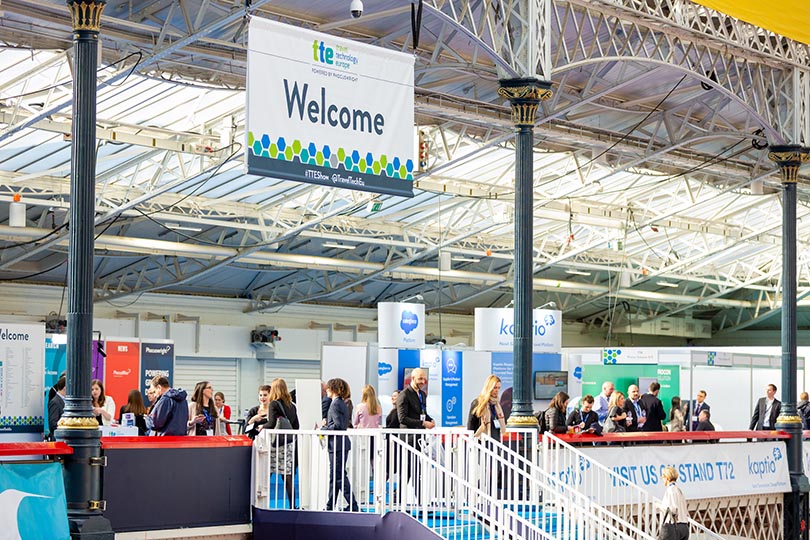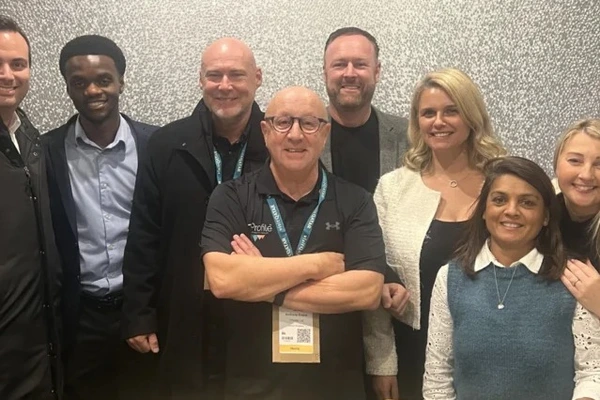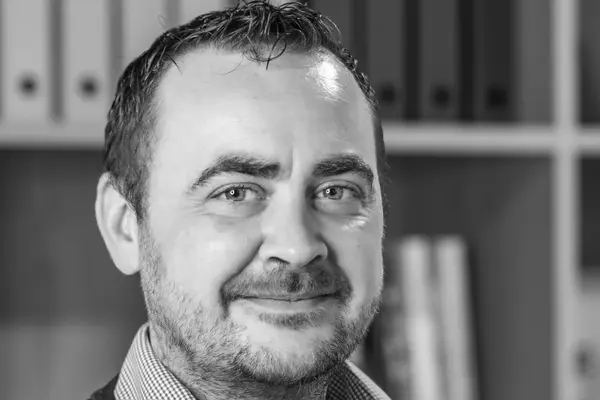Keeping track of tech and talent at Travel Technology Europe
This year’s C-Suite Question Time seminar at TTE saw experts address cybersecurity and new travel technologies. Andrew Doherty reports
Travel Technology Europe (TTE) returned to Olympia London for its 17th edition on 26-27 February, connecting buyers with more than 90 technology providers, as well as providing advice clinics and conference sessions.
A regular fixture and conference highlight was C-Suite Question Time, which saw leading chief technology, information and marketing officers address issues affecting travel businesses such as cybersecurity, attracting tech talent and how to kick-start digital transformation.
This year’s panel featured Manuel Hilty, chief executive and co-founder of Nezasa; Jeff Pan, chief executive of Flymya; Dirk Tietz, chief digital and transformation officer at Der Touristik; Rachel O’Brien, chief technology transformation officer at CWT; and Dwayne Pascal, chief technology officer at Criton.
They offered advice on how travel businesses can evolve, stay safe and embrace the latest innovations. Here,
we summarise the key findings.
Digital transformation
Simply put, digital transformation focuses on how businesses leverage the latest technologies to improve efficiency, such as cloud computing – the practice of using internet-hosted servers to store, manage and process data, rather than a personal computer.
While speakers from previous Question Time discussions have lauded the merits of senior leadership driving digital transformation, this year’s panel agreed that travel brands needed to embrace a different strategy in 2020.
“Overcommunicate,” said O’Brien. “Leadership has to come from the bottom – allow your teams to bring forward their ideas. Your team must have a purpose and a strategy.”
For senior managers, a background in technology isn’t necessary when managing digital transformation, she added. “What I’ve learnt to do is understand what our tech team is doing and translate it into layman’s terms.”
Since the launch of its 3.0 digital transformation strategy in 2017, which saw the firm feature third-party content providers in its search and booking platform, CWT ended that year with a revenue boost of 1.9% to $1.4 billion.
Attracting tech talent
The panel unanimously agreed that attracting staff, who can evolve with and embrace tech innovations, is vital for today’s travel brands to survive.
“What I look for most in potential employees is their capacity for humility and collaboration,” Pascal said. “Looking for a specific skill set based on technology won’t be relevant in a few years.”
For businesses seeking to retain technology-adept employees, creating a culture where staff feel a sense of responsibility is key, explained Nezasa’s Hilty. “You must take the entire team on the journey. You need to offer them everyday tasks to keep them interested. There are many synergies between the needs of a business and what developers want to achieve.”
According to Pan, of south-east Asian OTA Flymya, transparency is also an important factor for employees. “At Flymya, all of our emails are open, and salary bands have been made public. We want to be as transparent as possible,” he explained.
Keeping on top of cybersecurity
Online security was also a hot topic, influenced partly by high-profile data leaks from organisations, operators and airports including Heathrow – at a cost of £120,000 – and MGM Resorts.
“While we have teams dedicated to cybersecurity, it’s everyone’s responsibility,” warned O’Brien.
Flymya has used its experience as a victim of phishing emails to strengthen its security measures, said Pan. “We are surprised by the number of times we’ve fallen for them, yet these attacks can be good, as it keeps cybersecurity front of mind.”
Meanwhile, Der Touristik has bolstered its security by employing internal data security experts and third-party specialists.
“We have a dedicated team for cybersecurity, as well as working with external partners to keep data safe,” explained Tietz.
Key technologies for 2020
AI was on the agenda again this year, with Pascal citing Amazon’s “recommendations algorithm” as personalisation done well. The computer-implemented instructions help create a personalised shopping experience for each customer, which in turn has enabled Amazon to increase the average order value.
“This technology is running in the background. [The travel industry needs] to think about what the end-user wants.”
As for available technology that can help travel businesses, Pan suggested seeking out AppsFlyer – a mobile advertising attribution and analytics tool that helps firms pinpoint their marketing, optimise advertising spend and boost ROI.
Meanwhile, O’Brien praised Lumo’s automation capabilities – the mobile app informs clients of flight delays and automatically rebooks when travel is disrupted.
Most importantly, travel businesses need to innovate to stay ahead of the curve, she said. “Travel businesses must keep ahead to survive. If they don’t, the traveller will just look elsewhere.”
The next Travel Technology Europe will take place at ExCeL London from 24-25 February 2021.
THREE KEY LEARNINGS FROM TTE 2020
Amadeus’ PartnerPay will reduce the cost of payments for agents:
The technology creates a bespoke payment channel between an airline and a travel agency, enabling payments to be made on a branded virtual card. This has reduced the cost of the payment flow by 70% compared to traditional solutions such as IATA, BSP or Corporate Cards. Partners include Thai Airways and Air Europa, which have the ability to offer agencies rebates for using PartnerPay.
CRMs can help improve customer experience:
During the “OK, boomers and millennials: how do you want your travel?” session, Brian Young, managing director of EMEA at G Adventures, said travel businesses could leverage customer relationship management systems (CRMs) to refine product and marketing efforts. “We use client feedback to change elements of a tour and curate [marketing] content that’s inspirational. Be prevalent, but not in their face,” he advised.
Clients will expect travel apps to aggregate content:
This year, Iomob was crowned winner of the inaugural Phocuswright Battleground awards. The start-up, which launched in 2017, aggregates transport providers including taxis, bicycles and trains, so businesses can offer their clients access to all services without the need for downloading separate apps. Chief executive Boyd Cohen said integration would become more prevalent in travel. “People want a seamless experience, where they can access everything in one app. They also want more personalised content at their fingertips.”















